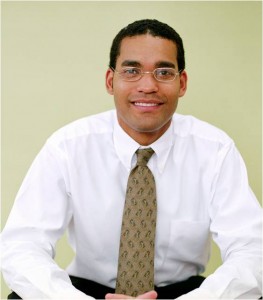 Enough already! Your work life is busy enough without someone telling you that you need to do still more things. Demands from your bosses, subordinates and customers inundate you. There is barely time to check your email, never mind respond to the flood of requests, meetings and other required activities. And then there is the business environment where survival alone seems to be a high goal. “Please” you want to say. No more. Not now. Not for me.
Enough already! Your work life is busy enough without someone telling you that you need to do still more things. Demands from your bosses, subordinates and customers inundate you. There is barely time to check your email, never mind respond to the flood of requests, meetings and other required activities. And then there is the business environment where survival alone seems to be a high goal. “Please” you want to say. No more. Not now. Not for me.
On the other hand, the vulnerabilities in business have never been clearer to you. Many good people that you know are out of work and suffering. You have dodged the bullet so far but you know that your company needs to do better. If the company does not win, your job may be the next to go. You remember a time, not so long ago, when ambition and possibilities motivated you more than fear. You enjoyed that time. It was a time of hard competition but winning, not just surviving, dominated your thinking.
It is time to think about winning again. It is time to take the measure of the competitors left standing and to attack. It is time to put together strategies that comprehend the market realities, accentuate your company’s strengths and exploit your competitors’ weaknesses.
How will you do all of that?
Read the rest of this entry
 Let the CEO hatch the grand schemes. Let the General Manager make the management presentations and get the credit. Let Marketing create their wonderful stories about the future. Let the Product Manager be the face that most associate with the product. Your job, simply put, is to make their dreams possible. You, and your teams, organize the people, harness the technologies, execute the processes and deliver the products that fuel all of those dreams.
Let the CEO hatch the grand schemes. Let the General Manager make the management presentations and get the credit. Let Marketing create their wonderful stories about the future. Let the Product Manager be the face that most associate with the product. Your job, simply put, is to make their dreams possible. You, and your teams, organize the people, harness the technologies, execute the processes and deliver the products that fuel all of those dreams. It probably wasn’t until I spent time in Malindi, Kenya, that I got a visceral sense of what it meant to be in the minority. My skin was far lighter, my hair was different and my clothes seemed out of place. I was a “mzungu” (white person). The people were quite kind yet I knew that most of the social adaptations would have to come from me. For a relatively brief time I felt what minorities must feel all the time when they live permanently with people different from themselves.
It probably wasn’t until I spent time in Malindi, Kenya, that I got a visceral sense of what it meant to be in the minority. My skin was far lighter, my hair was different and my clothes seemed out of place. I was a “mzungu” (white person). The people were quite kind yet I knew that most of the social adaptations would have to come from me. For a relatively brief time I felt what minorities must feel all the time when they live permanently with people different from themselves. A couple of days ago a friend of mine called to borrow a specific tool. He was going to start a repair to his riding lawnmower and needed a torque wrench. He has a large number of tools already – screwdrivers, saws, sockets, pliers, drills, etc. – that he has previously used to make or repair things around his house. However, on this day and for this lawnmower repair project, he needed something that he did not already have. So what did he do? Well, he started with the first and most powerful tool that he had to find the tool that he was missing. He called someone that he knew. Now it turns out that I was no help that day since I didn’t have a torque wrench. However, if he secretly didn’t want to buy the tool, I could have easily connected my friend with someone else that had a torque wrench to lend.
A couple of days ago a friend of mine called to borrow a specific tool. He was going to start a repair to his riding lawnmower and needed a torque wrench. He has a large number of tools already – screwdrivers, saws, sockets, pliers, drills, etc. – that he has previously used to make or repair things around his house. However, on this day and for this lawnmower repair project, he needed something that he did not already have. So what did he do? Well, he started with the first and most powerful tool that he had to find the tool that he was missing. He called someone that he knew. Now it turns out that I was no help that day since I didn’t have a torque wrench. However, if he secretly didn’t want to buy the tool, I could have easily connected my friend with someone else that had a torque wrench to lend.